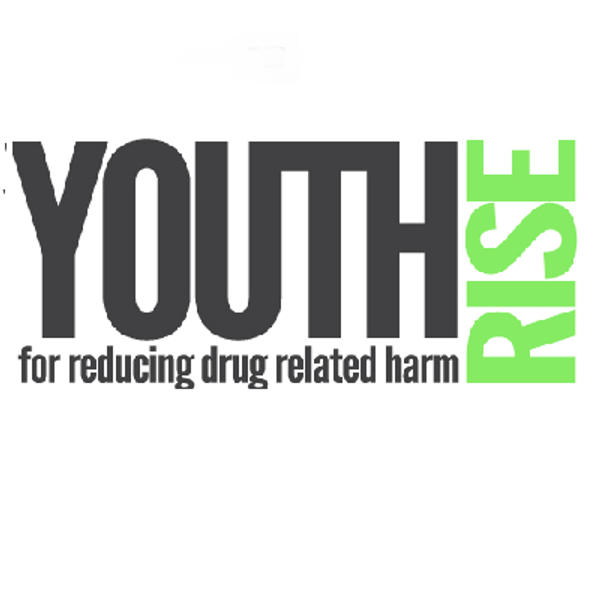Campagne de Youth RISE “Soutenez, ne punissez pas: Protégez notre jeunesse”
La campagne montre les effets négatifs de la pénalisation de l'usage de drogues afin de mobiliser des appuis en faveur d'approches alternatives fiables et qui protègent les droits humains, la santé et le potentiel des jeunes à travers le monde.
Pour en savoir plus, en anglais, veuillez lire les informations ci-dessous.
Abonnez-vous à l'Alerte mensuelle de l'IDPC pour recevoir des informations relatives à la politique des drogues.
For too long, the impacts of criminalising the use and possession of drugs among young people have been hidden. Youth RISE believes we must protect youth from harmful and dangerous drug policies which continue to destroy the life chances of huge numbers of young people. The "Support Dont Punish: Protect Our Youth" campaign highlights the damaging effects of drug criminalisation in order to generate support for evidence based, alternative approaches that protect the rights, health and potential of young people around the world.
Why decriminalise?
- Tough criminal sanctions that supposedly deter young people from using drugs are shown to be ineffective(1). Multi-million dollar prevention campaigns have failed spectacularly(2) . Countries with the toughest sanctions against young users have among some of the highest levels of consumption, as well as some of the highest levels of youth incarceration. Access to drugs remains as easy as it has ever been. Demand remains as strong as it ever has done(3). The goal of the UN to eliminate the cultivation of coca bush, cannabis and opium by 2009 has clearly not been reached and likely never will be. The production and cultivation of many drugs has increased(4)
- These policies directly undermine the health of young people. Police enforcement and harassment of young users leads to drug use going “underground” increasing the likelihood of young people engaging in high-risk drug using behaviour that makes them vulnerable to harms such as HIV, Hepatitis C and overdose(5). Fear of arrest prevents young people from accessing health services. Evidence supporting the idea that imprisonment of drug users reduces rates of use and reduction in availability is almost non-existent(6) .
- For the majority of young people who use drugs (many for only brief periods in their lives), the biggest hindrance to them fulfilling their potential is the impact of drug convictions, cautions and criminal records. Innocuous drug charges for often minor drug offences based on possessing small amounts of substances results in young people being denied the chance to achieve a proper education limiting their social mobility(7). The barriers they experience to education all too often continues into their adult years where the same barriers then exist to gaining meaningful and long term employment.
- The criminalisation of young people who use drugs has also lead to widespread human rights violations. This includes, for example, the inhumane detention of young people in drug detention centres in Asia(8), the mass incarceration of young people on minor drug charges in the United States and the harassment and the withholding of vital medicines to young drug users in Russia.
This campaign is calling for:
- National governments to remove criminal sanctions for possessing drugs for personal use. Drugs must be prioritised as a public health issue rather than a law enforcement one, prioritising the health, human rights and life chances of young people who use drugs.
- International institutions to support countries to move towards decriminalisation and assist them in adopting public health based approaches for addressing young people who use drugs.
- Civil society organisations and NGO’s who support human rights and youth development to support the call for the decriminalisation of young people who use drugs.
- Young people to be active in making their voices heard in this campaign and participate in drug policy reform.
We need to challenge ineffective and dangerous drug policies which increase the harms of young people who use drugs and lead to widespread human rights violations around the world. We need to challenge the reality faced by young people who get caught up in a system of court appearances, convictions, the revolving door of prison, police harassment, thwarted potential and blocked employment and education opportunities. Our youth deserve better.
1 Bean P 2010 Legalising Drugs: debates and dilemmas Bristol: The Policy Press
2 http://www.time.com/time/nation/article/0,8599,99564,00.html
3 Reuter, P 2009 Ten years after the United Nations General Assembly Special session (UNGASS): Assessing drug problems, policies and reform proposals. Addiction page 511
4 Room, R and Reuter, P 2012 How well do international drug conventions protect public health? Lancet 379 p88
5 Kerr T and Wood E The public health and social impacts of drug market enforcement: a review of evidence. Int J Drug Policy 2005: 16(4) 210-220
6 Room, R and Reuter, P 2012 How well do international drug conventions protect public health? Lancet 379 88
7 Klee H, McLean I and Yavorsky C 2002 Employing drug users Individual and systemic barriers to rehabilitation. Joseph Rowntree Foundation. Work and Opportunity Series No. 29
8 HRW report: Somsanga’s Secrets http://www.hrw.org/sites/default/files/reports/laos1011webwcover_0.pdf
